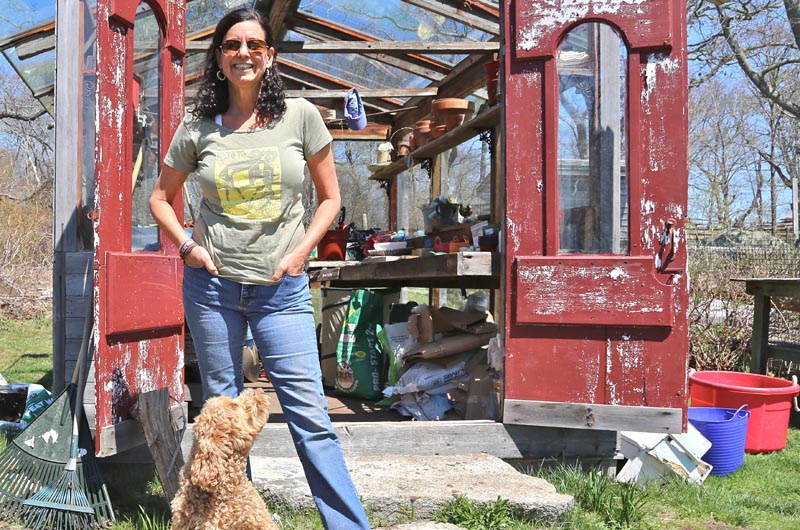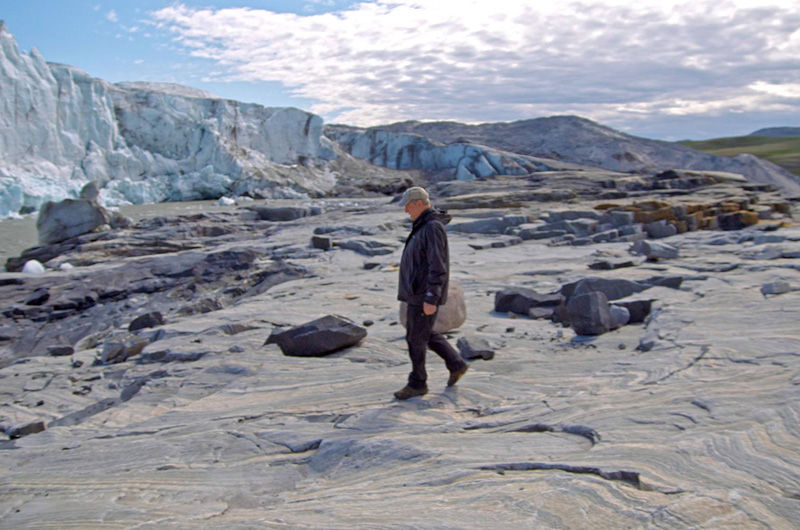When An Inconvenient Truth screened on the Island in 2006, people filled the Chilmark Community Center to capacity and peered through the windows to see the show. It was among the earliest screenings of the iconic film, which sounded a wake-up call about the dangers of climate change.
Eleven years later, many predictions in the film have come to pass, but solutions are on the rise and young people are more educated and concerned about climate change than ever before.

“It’s a different time now,” said Bonni Cohen, who along with her husband, Jon Shenk, directed the new documentary An Inconvenient Sequel, which opened in theatres this summer, including a run at the Martha’s Vineyard Film Society that continues through August 30. “It calls for a different kind of movie.”
At least two thirds of Americans now agree that climate change is real and caused by humans, and environmental sustainability is a growing industry, she said. “It’s a more sophisticated argument that needs to be made about the solutions.”
Public communication about climate change has also improved, she said, as evident in a widespread shift toward renewable energy and a growing awareness of what it means to live sustainably.
Climate change itself has become harder to deny, said Laurie David, an environmental activist and Island resident who served as executive producer for both An Inconvenient Truth and the sequel. “Ten years ago it wasn’t as visible,” she said. “Today it’s incredibly visible.”
The new film opens on an aerial scene of a glacier collapsing into the sea, overdubbed with climate change deniers denouncing An Inconvenient Truth and former Vice President Al Gore, whose crusade to raise awareness about climate change forms the basis of the two films.
Mr. Gore explains in the sequel that extreme weather events influenced by climate change have gotten much worse since 2006, with many cities and countries struggling to respond to larger storms and the increased drought, heat waves and sea level rise that climate change brings about.
Cell phone videos of floods washing away entire neighborhoods, dramatic rescues and escapes from the rising water, and people getting stuck to melted roads like flies on flypaper flash across the screen. A steady stream of charts, graphs and statistics highlight the changes that are underway.
In many ways, the film presents a world on the brink of a new era.
“So many of the solutions are in place to help combat the climate crisis that we can really talk about that in real terms,” said Ms. Cohen. “The cost-down curves for solar and wind and how quickly that’s being implemented in countries around the world, that’s very exciting news. So it’s not just paralyzing, desperate reporting. Of course there is some of that, but the big change is that there is so much to be optimistic about.”
“All the solutions exist,” said Ms. David, highlighting the efforts of governors and mayors across the country who are implementing renewable energy programs and other initiatives to address climate change. “I think the tide is turning.”
Solar and wind production has soared as the cost of technology has dropped and government leaders push for renewable energy development. In many countries it is already cheaper to get electricity from solar and wind than from fossil fuels.
But misinformation surrounding climate change is still a barrier to progress. “With all these new threats, there has never been a more important time to speak truth to power,” Mr. Gore says in the film.
A small film crew spent a year with Mr. Gore, documenting his PowerPoint presentations and climate trainings, and his visits with scientists and leaders around the world. The film also highlights his role in helping break an impasse in the 2015 Paris Agreement by encouraging the energy company SolarCity to share key solar technology with India free of charge.
Filmmakers rushed to re-edit the film’s ending when President Donald Trump pulled the United States out of the Paris Agreement this year, leaving many around the world in disbelief. “I think even Vice President Gore believed that he would keep us in Paris,” Ms. David said. “How do you turn your back on the world?”
But she said the timing of the film could not have been better, given the political atmosphere. “We need to express some real moral outrage over what’s going on with this administration and the environment,” she said.
Many cities and states around the country, including Massachusetts, have independently committed to the goals of the Paris agreement, which include a target of zero-greenhouse gas emissions by around 2050. “President Trump can’t stop the progress on this one,” Ms. David said.
The film opened in U.S. theatres in July, and in Australia, the United Kingdom and Singapore last week. Ms. Cohen said a school incentive program and an educational curriculum related to the film would be available to students in grades K-12, and at colleges and universities.
“The first film reached a huge amount of students, and we are hoping that this one will as well,” she said. She added that people between the ages of about 14 and 25 were a key audience. “Climate change is the issue of that generation,” she said. “This is their atomic bomb.”
As with An Inconvenient Truth, Ms. David expected the sequel to serve largely as a wake-up call, especially for young people who may have missed the original. She measures success not only in terms of ticket sales, but in the conversations and media attention the film has begun to generate around the world.
Ms. Cohen agreed. “We will measure the success in change,” she said, “how much change is made by the American people and people around the world. And we hopefully will be able to relate that to what they’ve learned in the film.”
Will there be a third film in the series?
“Hopefully we won’t need one,” Ms. Cohen said. “Or if we do, it will be all about how wonderful the solutions have been and how far we’ve made it in terms of the sustainability revolution.”
An Inconvenient Sequel screens at the Martha’s Vineyard Film Center in Vineyard Haven through August 30. Visit mvfilmsociety.com.








Comments
Comment policy »